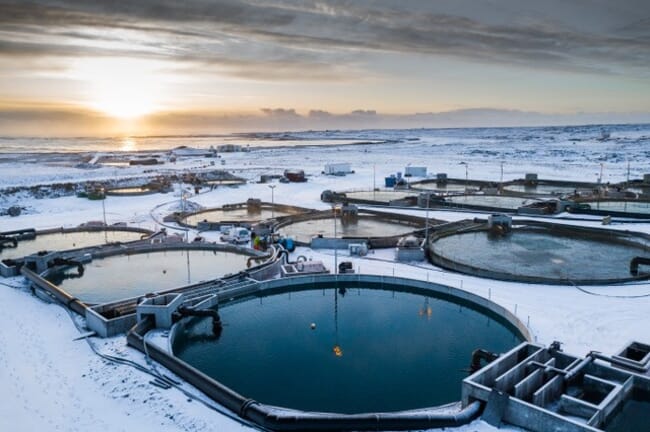
Waste products from Iceland's land-based fish farming sector could be converted into biogas, fertiliser and biochar
The four year project, which kicked off on 1 June, aims to process fish sludge, dead fish, sludge from organic waste and agriculture to create valuable energy, fertiliser and biochar of high quality.
The grant has been awarded by the Environment and Climate Program of the European Union (LIFE), and will be split between Landeldi, Iceland’s Farmers’ Association, Orkidea, Olfus Cluster and SMJ from the Faroe Islands and associates Blue Ocean Technology from Norway.
The project aims to develop a new method to produces, biogas through sludge treatment and pyrolysis technology from Blue Ocean Technology, a system that also enables efficient carbon capture. It aims to strengthen the circular economy of Iceland's domestic food production, while reducing the carbon footprint and promoting a significantly more positive environmental impact in both agriculture and aquaculture. Pyrolysis is the only established and recognised method for carbon negative effect, according to Blue Ocean Technology.
Runar Thor Thorarinsson, project coordinator and representative of Landeldi, underlined the importance of the extensive collaboration, saying in a press release: “This includes an extremely exciting opportunity for the utilisation of organic side streams from fish farming on land. The products will benefit the Icelandic cycle system and improve the environmental impact of aquaculture by producing not only fertiliser for agricultural production, but also carbon-neutral fuel, electricity and heat.”
Gunnar Þorgeirsson, chairman of Iceland’s Farmers’ Association, believes that the project supports the resilience and independence of Icelandic agriculture and food production. “One of the biggest challenges we farmers have faced in recent years has been the huge increase in fertiliser prices. This project will reduce its impact by increasing the availability of domestic fertilisers. Farmers are excited about the project, as they want to be at the forefront of developing solutions to the climate problem – and the project reduces agriculture’s ecological footprint,” he stated.




